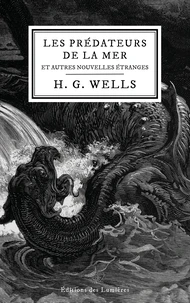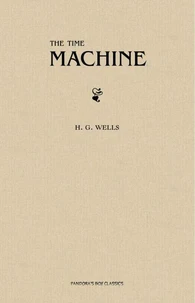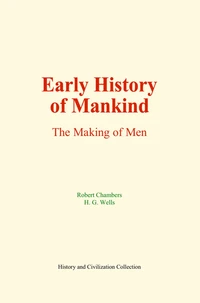Tales of Space and Time
Par :Formats :
Disponible dans votre compte client Decitre ou Furet du Nord dès validation de votre commande. Le format ePub est :
- Compatible avec une lecture sur My Vivlio (smartphone, tablette, ordinateur)
- Compatible avec une lecture sur liseuses Vivlio
- Pour les liseuses autres que Vivlio, vous devez utiliser le logiciel Adobe Digital Edition. Non compatible avec la lecture sur les liseuses Kindle, Remarkable et Sony
 , qui est-ce ?
, qui est-ce ?Notre partenaire de plateforme de lecture numérique où vous retrouverez l'ensemble de vos ebooks gratuitement
Pour en savoir plus sur nos ebooks, consultez notre aide en ligne ici
- Nombre de pages108
- FormatePub
- ISBN978-87-26-58720-3
- EAN9788726587203
- Date de parution26/08/2020
- Protection num.Digital Watermarking
- Taille410 Ko
- Infos supplémentairesepub
- ÉditeurSAGA Egmont
Résumé
"Tales of Space and Time" is a collection of three short stories and two novellas that can easily be classified as a mixture of science fiction and fantasy. The author's vivid mind takes you to the very end of the universe and at the same time - to the very beginning of time. This constant oscillation between past, present, and future cements Wells' belief, often seasoned with some humour and satire, that human kind is much the same across different eras.
The last story, for example, "The Man Who Could Work Miracles" shows how man's sloppiness can easily ruin even miracles.
The last story, for example, "The Man Who Could Work Miracles" shows how man's sloppiness can easily ruin even miracles.
"Tales of Space and Time" is a collection of three short stories and two novellas that can easily be classified as a mixture of science fiction and fantasy. The author's vivid mind takes you to the very end of the universe and at the same time - to the very beginning of time. This constant oscillation between past, present, and future cements Wells' belief, often seasoned with some humour and satire, that human kind is much the same across different eras.
The last story, for example, "The Man Who Could Work Miracles" shows how man's sloppiness can easily ruin even miracles.
The last story, for example, "The Man Who Could Work Miracles" shows how man's sloppiness can easily ruin even miracles.























